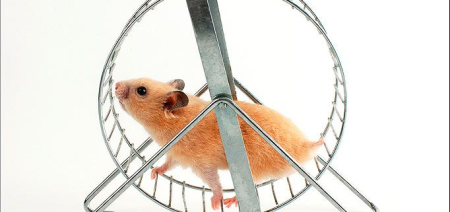Solomon, wrote the most extensive Christian to-do list in the Bible, the book of Proverbs. It’s reads like a long list of dad advice. It starts in chapter one with “Listen, my son, to your father’s instruction.” (Proverbs 1:8) and continues for 31 chapters.
I half expect to hear Solomon say “I’m not sleeping, I’m just resting my eyes.”
It would be easy feel after reading Proverbs that as people we need to be good at everything. Fortunately Solomon also wrote the book of Ecclesiastes. It starts off like this.
The words of the Teacher, son of David, king in Jerusalem: “Meaningless! Meaningless!” says the Teacher. “Utterly meaningless! Everything is meaningless.” –Ecclesiastes 1:1,2
There’s a happy verse. I’m fairly certain that no one has memorized those verses for their devotions or tattooed them on their forearm. I know these verses sound depressing, but they hold a simple truth that can reduce the clutter in your life. Here’s why:
The amount of things in your life that really matter is much smaller than you think.
Let that sink in for a moment. The amount of things in your life that really matter is much smaller than you think. In fact, it’s ridiculously smaller than you think. We live very differently. The amount of things that matter to us is large and is ever expanding. That’s why so many people have so little margin in their life. Here’s why:
In our culture, meaningless things have taken on too much importance.
Solomon continues with these words.
What do people gain from all their labors at which they toil under the sun? Generations come and generations go, but the earth remains forever. The sun rises and the sun sets, and hurries back to where it rises. The wind blows to the south and turns to the north; round and round it goes, ever returning on its course. All streams flow into the sea, yet the sea is never full. To the place the streams come from, there they return again. –Ecclesiastes 1:3-7
There is one phrase in these verses that I think perfectly describes how many people live their lives:
Round and round it goes.
We are always running, chasing and pursuing. Our calendars are full, our plates are spinning, our wheels are turning. We are always moving, planning, racing, and doing. That’s us, isn’t it? Here’s a question that I think is worth asking: Are the things we run after and move toward and plan our calendars around getting us where we really want to go? Do you ever feel like your goal is to get on your bike and head for the beach, but you’re stuck in spin class?
This is what I call hamster wheel living.
If you’ve ever owned a hamster, you know what I’m talking about. I made the mistake of buying my child a hamster and have made a couple of observations about these little creatures. I learned very quickly that their cute demeanor belies a wicked and evil soul. Each of my kids has been bitten by a hamster. We once had a hamster eat another hamster’s head. We have had such negative experiences with hamsters that I would not rule out demon possession.

My second and third observations are intertwined. Hamsters are nocturnal and compulsive fitness freaks. Almost every hamster cage comes with a little exercise wheel for your hamster to get some cardio to keep them sharp, just in case they need to attack. Since hamsters are nocturnal, most of the running happens when you are trying to sleep.

I’m sure a hamster wheel keeps your hamster from getting love handles, but the hamster wheel is an instrument of sleep depriving torture. It is also the perfect example of an exercise in futility. In your busyness, do you ever think, “Is there purpose to my running or is my racing around hamster wheel living?” It seems to me that there is one common reason that people keep running.
Our culture places a high value on the accumulation of things.
Solomon put it like this:
All things are wearisome, more than one can say. The eye never has enough of seeing, nor the ear its fill of hearing. Ecclesiastes 1:8
Let me add three words to these verses.
The accumulation of all things is wearisome.
In Ecclesiastes 2, Solomon tries to find purpose in the accumulation of stuff. Anything that his eyes see he pursues.
I said to myself, “Come now, I will test you with pleasure to find out what is good.” But that also proved to be meaning‐ less. “Laughter,” I said, “is madness. And what does pleasure accomplish?” I undertook great projects: I built houses for myself and planted vineyards. I amassed silver and gold for myself, and the treasure of kings and provinces. I acquired male and female singers, and a harem as well—the delights of a man’s heart. I denied myself nothing my eyes desired; I refused my heart no pleasure. My heart took delight in all my labor, and this was the reward for all my toil. Yet when I surveyed all that my hands had done and what I had toiled to achieve, everything was meaningless, a chasing after the wind; nothing was gained under the sun. –Ecclesiastes 2:1-2, 4, 8, 10-11
Solomon seeks three pursuits that have never gone out of style: money, sex, and power.
In his pursuit, Solomon comes to this realization: The accumulation of stuff is meaningless.
Thing accumulation will never end in peace.
Pleasure accumulation will never end in peace.
Money accumulation will never end in peace.
Knowledge accumulation will never end in peace.
Calendar accumulation will never end in peace.
It’s hamster wheel living. As people it’s a common cultural tendency to look to the accumulation of things to find our peace. God has a different idea. If you are looking to simplify your life start here.
You will keep in perfect peace those whose minds are steadfast, because they trust in you. Isaiah 26:3
If you are hoping for temporary peace, then keep up that pursuit of money and power and let those Amazon boxes keep coming. It you are looking for perfect peace it starts when you get serious about trusting God above everything else.
If you’d like to get serious about finding this peace, get a copy of my book Your Picture is on My Refrigerator.










Leave A Comment